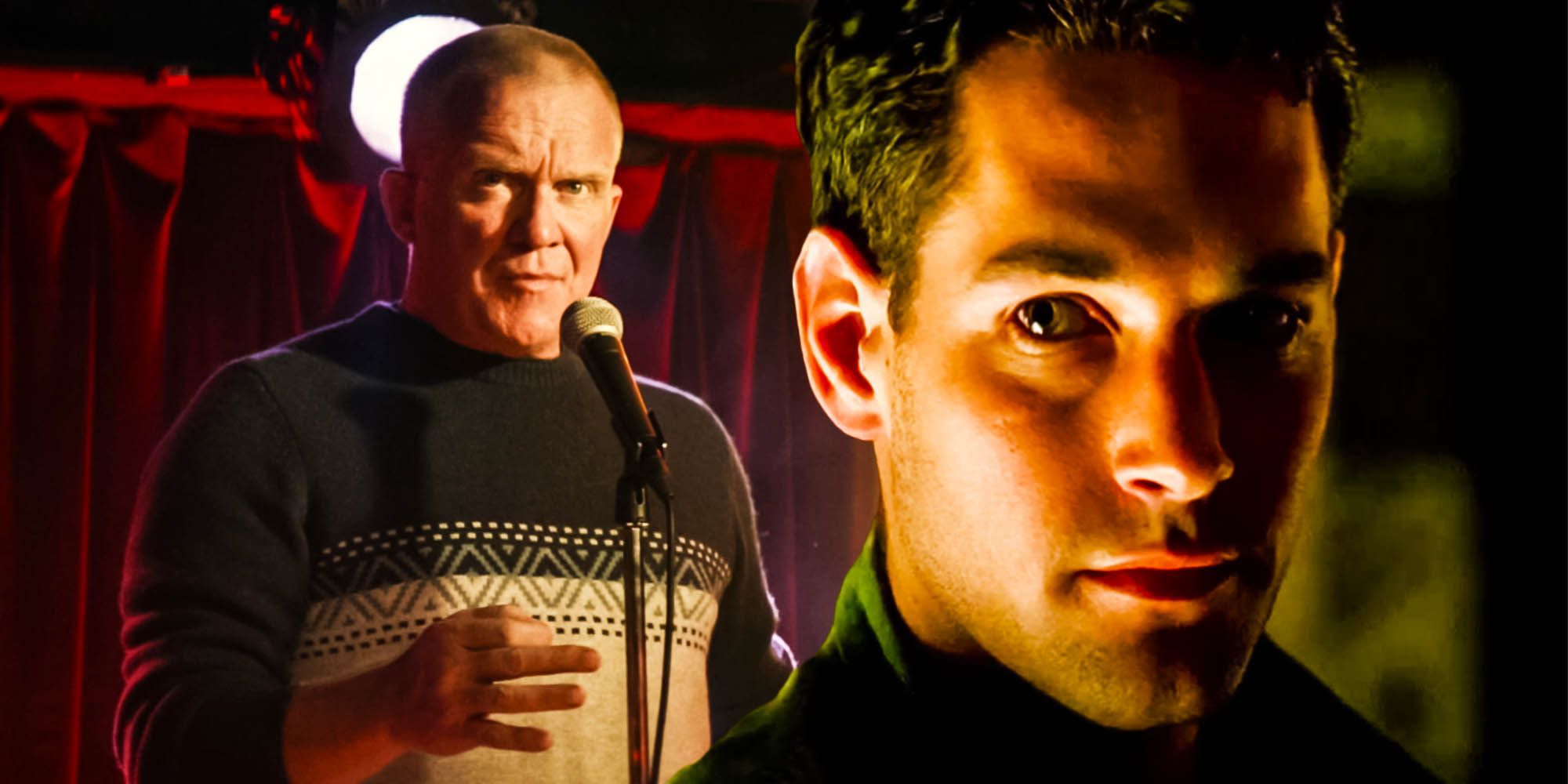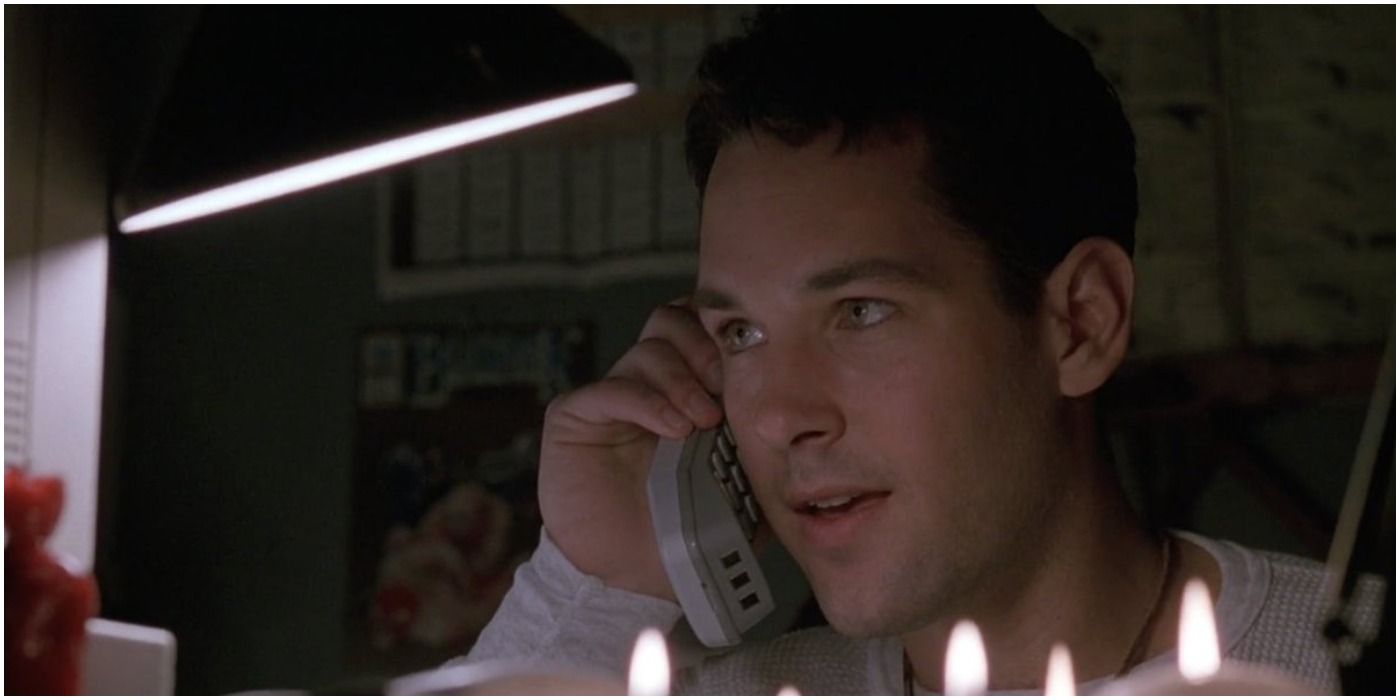Paul Rudd's portrayal of Tommy Doyle in Halloween: The Curse of Michael Myers differs greatly from Halloween Kills' latest incarnation of the perennial Michael Myers survivor. Halloween Kills marks the second franchise installment from director David Gordon Green, who returns to orchestrate proceedings following the widespread commercial success of the 2018 Halloween reboot. Despite a far more mixed critical response than its immediate predecessor, Halloween Kills does well to reintroduce several familiar faces to Green's overarching trilogy plans, including Anthony Michael Hall's gritty portrait of franchise mainstay Tommy Doyle.
A stalwart of the Halloween movie franchise since 1978, Doyle was first introduced to audiences as an eight-year-old boy, who, prophetically, is afraid of the "bogeyman." Babysat by Laurie Strode (Jamie Lee Curtis), Doyle survives a harrowing night in Haddonfield plagued by the lurching figure of Michael Myers before eventually helping Dr. Loomis (Donald Pleasence) locate his escaped patient. Tommy Doyle has since featured in six different Halloween installments across different continuities, with his final appearance in Halloween Kills acting as a bloody coda for his 43-year character arc.
Yet Halloween Kills undoubtedly wastes Tommy Doyle's character potential that Halloween: The Curse of Michael Myers attempted to establish canonically. While Anthony Michael Hall performs valiantly in such a one-dimensional role, Tommy's dour storyline offers very little to advance Halloween Kills' death-laden plot before his abrupt and rushed death. This stands in stark contrast with Paul Rudd's version of Doyle, whose lore-filled turn as the reclusive Michael Myers hunter props up an otherwise disastrous fifth Halloween installment.
Halloween Kills reintroduces Tommy Doyle as a man hardened by the fateful events of 1978, with Hall's character presenting as both vigilante leader and Haddonfield historian in equal measure. A far cry from the terrified boy played by Brian Andrews in the original Halloween, Doyle now leaps at the chance to enact mob justice against the entity that has plagued his town for generations. Yet Halloween Kills' canon decision to depict Doyle as a man seeking righteous vengeance translates as a ham-fisted attempt at genuine character development, with many of Tommy's choices appearing asinine in the face of such clear danger. Doyle's decision to face down a man who he thinks is Myers in the parking lot smacks of un-earned Hollywood bravado, as does his poorly devised plans for Haddonfield residents to take up arms against Myers, which results in unnecessary deaths.
However, the greatest critique of Tommy Doyle's arc in Halloween Kills is that his character experiences zero growth throughout the film's 105-minute runtime. Despite featuring heavily in the film's story, Halloween Kills' Doyle somehow feels peripheral to proceedings, with his character refusing to chart a new course even as his rage results in an innocent man's death. His assertion to Laurie that he will "go down swinging" after realizing he has been chasing the wrong man for the best part of an hour smacks as much of a lack of ideas for the character as it does a clumsy attempt at foreshadowing the film's penultimate scene.
In contrast, Paul Rudd's Tommy Doyle is perhaps the only reason to return to Halloween: The Curse of Michael Myers in 2021 after Green's franchise reboot retconned the film. While The Curse of Michael Myers' attempts at replacing the Halloween franchise's standard slasher fare with convoluted mysticism proved ill-fated, its handling of Tommy Doyle represents a much more believable character arc. In Halloween: The Curse of Michael Myers, Doyle's fascination with Myers leads him to uncover the Curse of Thorn, resulting in a satisfying redemption for the boy who was haunted by his past for years. An otherwise bland narrative may well bog down Tommy Doyle's story in The Curse of Michael Myers, but it still represents a much more interesting take on the character than the narrow and linear fare served up for Doyle by Halloween Kills.


